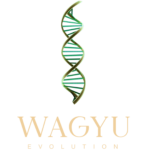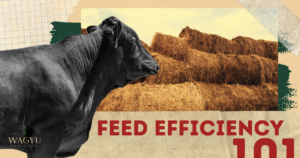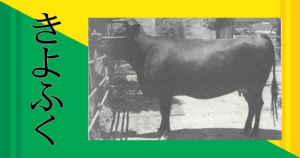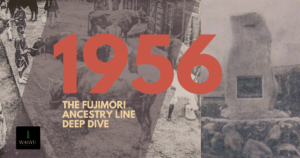Wagyu cattle are well-known for producing some of the world’s most delicious and high-quality regular beef. To achieve this superior meat quality, it is crucial to understand their nutrition and feeding requirements. Proper feeding for wagyu cattle nutrition management is a critical factor that influences the growth, health, and meat quality of Wagyu cattle.
In this blog post, we will delve into the nutritional needs of Wagyu cattle, the types of feed they consume, and the best feeding practices to achieve optimal results. Understanding the proper nutrition and feeding requirements for Wagyu cattle can help farmers and ranchers raise healthy and productive animals and ultimately produce high-quality wagyu meat that meets the demands of consumers worldwide.
What Is The Aim Of Balanced Wagyu Feeding?
Balanced Wagyu feeding aims to provide the right balance of nutrients, vitamins, and minerals to Wagyu cattle, promote optimal growth, and produce high-quality meat with excellent flavor and marbling characteristics. Wagyu cattle are known for their superior meat quality, characterized by high intramuscular saturated fat, monounsaturated fat, or marbling levels.
To achieve this, a balanced feeding program is designed to provide an appropriate balance of energy, protein, minerals, and vitamins to Wagyu cattle at different stages of their growth and development. The feed ration for Wagyu cattle nutrition typically includes high-quality forages such as alfalfa and grasses and a concentrate mix containing corn, barley, soybean meal, and other ingredients.
Additionally, some farmers supplement their cattle feed with specific minerals and vitamins, such as copper, zinc, and vitamin E, to enhance their health and overall well-being.
Overall, balanced Wagyu feeding aims to optimize the growth and development of Wagyu cattle and produce high-quality meat with superior flavor, tenderness, and marbling.

| Nutrient | Purpose | Recommended Amount |
|---|---|---|
| Energy | Fuel for metabolism and growth | 12-16 Mcal/day |
| Protein | Building blocks for muscle growth and repair | 12-16% of diet |
| Calcium | Structural component of bones and teeth, muscle function | 0.3-0.5% of diet |
| Phosphorus | Structural component of bones and teeth, energy metabolism | 0.2-0.4% of diet |
| Magnesium | Enzyme function, bone and muscle health | 0.2% of diet |
| Potassium | Muscle function, acid-base balance | 1.0-1.5% of diet |
| Sodium | Fluid balance, nerve and muscle function | 0.1-0.2% of diet |
| Chloride | Fluid balance, acid-base balance | 0.2-0.4% of diet |
| Iron | Oxygen transport, enzyme function | 50-100 ppm of diet |
| Zinc | Enzyme function, immune function | 30-50 ppm of diet |
| Copper | Enzyme function, connective tissue synthesis | 5-15 ppm of diet |
| Manganese | Enzyme function, bone and cartilage formation | 20-40 ppm of diet |
| Selenium | Antioxidant, immune function | 0.1-0.3 ppm of diet |
| Vitamin A | Vision, immune function, growth | 22,000-44,000 IU/day |
| Vitamin D | Calcium absorption, bone health | 800-1,000 IU/day |
| Vitamin E | Antioxidant, immune function | 30-60 IU/day |
| Vitamin K | Blood clotting, bone health | 1-3 mg/day |
| Vitamin B12 | Red blood cell formation, nerve function | 5-20 mcg/day |
Feeding Requirements: Understanding Wagyu Cattle Diet
To achieve such high-quality beef, it is essential to provide the cattle with a well-balanced diet that meets their nutritional requirements. In this response, we will discuss the feeding requirements for Wagyu cattle in terms of macro-nutrients, micro-nutrients, water, and minerals.
Macro-Nutrients:
Wagyu cattle require a diet rich in carbohydrates, protein, and fats. Generally, adult Wagyu cattle require a diet of 60% to 70% roughage (fiber), 10% to 20% protein, and 10% to 20% energy (carbohydrates and fat). The protein in the diet should be of high quality, such as soybean meal or alfalfa hay, to promote muscle growth and development.
The energy in the diet can be provided by grains, such as corn or barley, or fat sources, such as vegetable oil or grease. The exact amount of each macro-nutrient required will depend on the specific feeding program and the desired outcome, such as growth rate or marbling score.
Micro-Nutrients:
In addition to macro-nutrients, American Wagyu cattle also require a variety of micro-nutrients to maintain good health and growth. These include vitamins, minerals, and trace elements.
The amount of each micro-nutrient required will depend on the animal’s age, weight, and sex, as well as the quality and type of feed provided. Common micro-nutrients required by Wagyu cattle include:
Vitamin A: Required for good vision, growth, and immunity. The recommended daily amount is 22,000 to 44,000 IU per day.
Vitamin D: Required for calcium absorption and bone growth. The recommended daily amount is 800 to 1,000 IU per day.
Vitamin E: Required for muscle and nerve function and immunity. The recommended daily amount is 30-60 IU/day.
Calcium: Required for bone growth and muscle function. The recommended daily amount is 0.3-0.5% of the diet.
Phosphorus: Required for bone growth and energy metabolism. The recommended daily amount is 0.2% to 0.4% of the diet.
Potassium: Required for fluid balance and muscle function. The recommended daily amount is 1% to 1.5% of the diet.
Sodium: Required for fluid balance and nerve function. The recommended daily amount is 0.1% to 0.2% of the diet.
Iron: Required for oxygen transport and immune function. The recommended daily amount is 50 to 100 mg per day.
Water and Minerals:
Water and minerals are also essential for the health and growth of Wagyu cattle. As a general rule, adult Wagyu cattle always require access to clean drinking water. They also require minerals, such as salt and magnesium, to maintain good health. The number of minerals required will depend on the specific feeding program and the animal’s needs. Common minerals required by Wagyu cattle include:
Salt: Required for fluid balance and nerve function. The recommended daily amount is 0.5% to 1.5% of the diet.
Magnesium: Required for bone growth and muscle function. The recommended daily amount is 0.2% to 0.3% of the diet.
Zinc: Required for immune function and wound healing. The recommended daily amount is 30 to 50 mg per day.
Copper: Required for iron metabolism and immune function. The recommended daily amount is 10 to 20 mg per day.
Manganese: Required for bone development and metabolism. The recommended daily amount is 40 to 80 mg per day
Selenium: Required for immune function and antioxidant defense. The recommended daily amount is 0.1 to 0.3 mg per day.
It is important to note that the specific amounts of macro and micro-nutrients required by Japanese black cattle may vary depending on the animal’s age, weight, sex, and production goals. Additionally, the quality and availability of feed and environmental factors such as temperature and humidity can also affect the animal’s nutrient requirements.
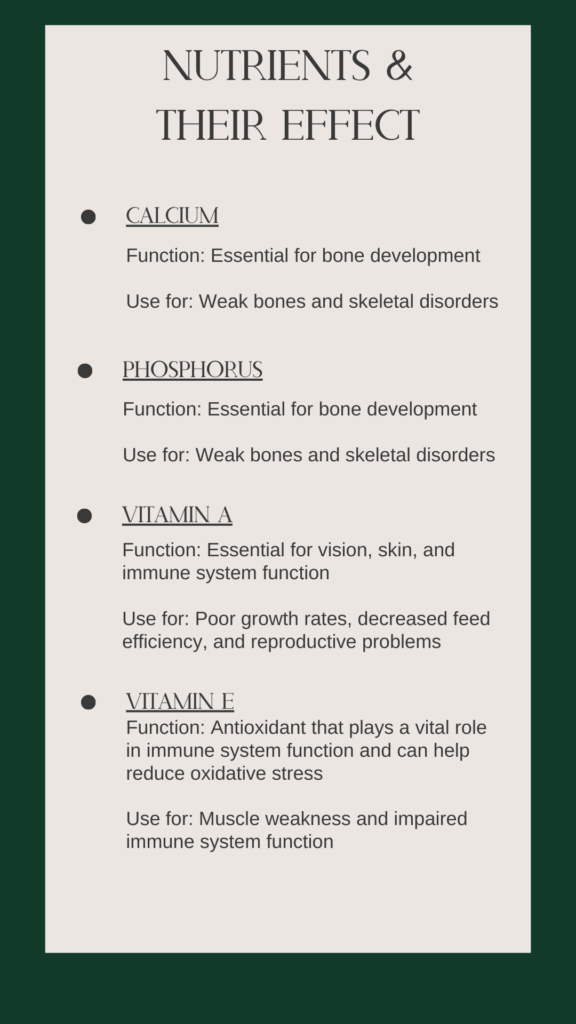
| Nutrient | Function | Deficiency Symptoms |
|---|---|---|
| Calcium | Essential for bone development | Weak bones and skeletal disorders |
| Phosphorus | Essential for bone development | Weak bones and skeletal disorders |
| Vitamin A | Essential for vision, skin, and immune system function | Poor growth rates, decreased feed efficiency, and reproductive problems |
| Vitamin E | Antioxidant that plays a vital role in immune system function and can help reduce oxidative stress | Muscle weakness and impaired immune system function |
Feeding Practices for Wagyu Cattle
Feeding practices play a crucial role in the growth and development of Wagyu cattle. Whether grazing or feeding in a feedlot, providing them with a well-balanced diet that meets their nutritional requirements is essential for their health, growth, and meat quality like Japanese shorthorn.
Grazing Vs. Feedlot: Advantages And Disadvantages
Grazing is a traditional method of feeding cattle that allows them to graze on pasture and forage. This method offers several advantages, including lower feed costs, improved animal welfare, and environmental impact. However, grazing may not provide the nutrients and energy required to produce high-quality meat for Wagyu cattle.
On the other hand, feedlot feeding involves confining cattle to a small area and feeding them a high-energy diet to promote rapid growth and marbling. This method allows for more precise control over feed intake, resulting in a more consistent product. However, feedlot feeding can be costly, and some consumers may view it as less environmentally friendly and humane.
Optimal Feeding Strategies:
For grazing, it is essential to ensure that the pasture and forage provided to Japanese brown Wagyu cattle meet their nutritional requirements. Supplemental feeding may be necessary to meet their energy and protein requirements, particularly during low forage availability or poor pasture quality.
For feedlot feeding, it is crucial to provide a well-balanced and consistent diet that meets the nutritional requirements of Wagyu cattle. Feeding a high-quality diet with high energy and protein levels can help promote rapid growth and marbling.
Feed Rations & Components Of A Balanced Feed Ration:
A balanced feed ration for Wagyu cattle should include the following components
Roughage: Roughage provides fiber and promotes rumen health. Examples of roughage include hay, silage, and straw.
Concentrates: Concentrates provide energy and protein and may include grains, protein supplements, and other feedstuffs.
Vitamin & Minerals: A balanced mix of vitamins and minerals is essential for overall health and productivity.
Examples of balanced feed rations for Wagyu cattle:
An example of a balanced feed ration for Wagyu cattle might include:
- 50% corn silage
- 30% high-moisture corn
- 10% soybean meal
- 10% mineral and vitamin supplement
Another example might include:
- 50% alfalfa hay
- 25% corn grain
- 10% soybean meal
- 10% wheat bran
- 5% mineral and vitamin supplement
The Role Of Nutrition In Wagyu Beef Quality
Wagyu beef is renowned for its high marbling content and exceptional flavor, influenced by the animal’s diet. The primary factor affecting marbling is the animal’s genetics, but nutrition also plays a crucial role.
The energy density of the diet is one of the key factors affecting marbling, with a higher energy density resulting in increased fat deposition. Additionally, the diet’s omega-6 to omega-3 saturated fatty acid ratio can impact marbling, with a lower ratio leading to better marbling.
The flavor is also impacted by nutrition, with certain nutrients contributing to the taste and aroma of the meat. For example, vitamin E has been shown to improve the flavor of beef production by reducing oxidative stress and improving lipid stability. Antioxidants like vitamin C and selenium can also improve the flavor and tenderness of the meat.
Strategies For Optimizing Marbling And Flavor Through Nutrition
Farmers must provide a balanced diet that meets the animal’s nutritional requirements to optimize the marbling and flavor of Japanese beef. The diet should include a high-quality forage base, such as alfalfa and grasses, and a concentrate mix containing corn, barley, soybean meal, and other ingredients. Farmers may also supplement the diet with specific nutrients, such as vitamin E, selenium, and antioxidants, monounsaturated fatty acid, amino acids to improve the meat’s flavor and tenderness.
Benefits Of A Properly Balanced Diet For Wagyu Cattle
Providing Wagyu cattle with a properly balanced diet has numerous benefits for their health, growth, and overall well-being. Here are six key benefits of a properly balanced diet for Wagyu genetics:
Improved Growth and Development: A properly balanced diet provides olive Wagyu cattle with the necessary nutrients for optimal growth and development. This can help ensure the animals reach their full genetic potential, producing higher-quality Kobe beef
Better Immune Function: A well-balanced diet that meets the animal’s nutrient requirements can help support its immune function. This can help reduce the risk of disease and illness and improve the animal’s overall health and well-being.
Reduced Risk of Health Problems: A balanced diet can help reduce the risk of health problems such as metabolic disorders, reproductive issues, and other conditions that can impact the animal’s productivity and profitability.
Higher Quality Beef: A properly balanced diet can result in higher quality American wagyu beef that is more tender, flavorful, and nutritious. This can help improve the value of the animal, heart disease, and the profitability of the farm or ranch.
Improved Feed Efficiency: Providing a well-balanced diet can help improve feed efficiency, meaning the animal can convert feed into meat more efficiently by growing enough intramuscular fat. This can help reduce the amount of feed required to produce a pound of meat, reducing cholesterol levels and improving profitability.
Environmental Sustainability: Providing Wagyu cattle with a well-balanced diet can also have environmental benefits. Farmers and producers can reduce their environmental impact and promote sustainability by optimizing feed efficiency and reducing waste.
Overall, providing Wagyu breed cattle with a properly balanced diet is essential for promoting their health, growth, and productivity. By working with a veterinarian or animal nutritionist to develop a feeding program that meets the animal’s specific needs, farmers and producers can maximize the potential of their Wagyu herd and produce high-quality Japanese wagyu beef cattle that meet consumer demand.
Favorite Foods Of Wagyu cattle
There are so many favorite foods of Wagyu cattle, but here are some that the Waygu love more than others.
Alfalfa Hay: Alfalfa hay is a primary component of the Wagyu diet. It is rich in fiber, protein, and other nutrients essential for the growth and health of American Kobe cattle. It is also known for its high calcium content, which supports the development of strong bones.
Barley: Barley is an excellent source of carbohydrates and energy, which are vital for the growth and development of Wagyu cattle. It is also rich in essential minerals like potassium and magnesium, oleic acid, linoleic acid, and unsaturated fatty acids contributing to cattle health.
Corn: Corn is one of the most popular feeds for Wagyu cattle. It is an excellent source of carbohydrates, energy, and fat content necessary to produce marbled meat. Corn is also rich in antioxidants, which contribute to cattle health.
Wheat: Wheat is a valuable source of protein, carbohydrates, and essential vitamins and minerals for Japanese cattle. It is an integral part of their diet as it contributes to the overall health and well-being of the cattle.
Soybean Meal: Soybean meal is a high-protein feed source used in Wagyu cattle’s diet. It is rich in essential amino acid, which contributes to the growth and development of muscle tissues. Soybean meal is also an excellent source of phosphorus, which helps to maintain strong bones.
Rice Straw: Rice straw is a low-cost and readily available feed source for Wagyu cattle. It is rich in fiber and other essential nutrients, making it an ideal component of their diet.
Silage: Silage is fermented grass stored in airtight conditions to preserve its nutrients. It is an excellent source of energy and fiber for Wagyu cattle. Silage also contains lactic acid, which supports the growth of beneficial bacteria in the digestive tract of cattle, improving their overall health.
A properly balanced diet for red Wagyu cows should consist of adequate amounts of protein, carbohydrates, and trans fat, as well as essential vitamins and minerals. The specific nutrient requirements will depend on the animal’s age, weight, and sex, as well as the stage of production.
Wagyu cattle require a minimum of 8-10% protein in their diet, which can vary depending on the animal’s age and production stage. For example, growing calves may require more protein than mature cows.
Wagyu cattle require a range of micronutrients, but some of the most important ones include calcium, phosphorus, magnesium, copper, and zinc. These nutrients are essential for bone growth, muscle, and immune system function.
Wagyu cattle require access to clean drinking water at all times, and the amount needed can vary depending on the animal’s age, weight, and environmental conditions. Generally, adult Japanese Wagyu cattle require around 2-3 gallons of water per 100 pounds of body weight daily.
Wagyu cattle should be fed regularly to ensure they receive a consistent supply of nutrients. The specific feeding schedule will depend on the animal’s age, weight, production stage, and feeding program.
Nutrition and feeding requirements play a crucial role in the growth and development of Wagyu cattle. Proper nutrition management and feeding practices can enhance meat quality and increase producers’ profitability. It is essential to understand the nutritional needs of Wagyu cattle at different stages of growth and adjust feed rations accordingly.
A balanced diet with high-quality forages, grains, and supplements can ensure optimal health and performance in animal science. Careful attention to feeding practices, including feed bunk management, mixing, and frequency, can also help optimize production. By prioritizing nutrition and feeding, producers can help ensure the long-term success of their Wagyu cattle operation.
References
- Guidelines to feed Wagyu cattle for optimal marbling – Dr Vlok Ferreira –
- Nutrient Requirements of Beef Cattle – Oklahoma State University Extension
- Nutritional Components of Successful Wagyu Feeding Programs – Jimmy L. Horner, Ph.D., P.A.S., Diplomate ACAN Protocol Technologies
- What Wagyu Cattle Are Fed – California Stone Creek, Inc.
- Nutrient Requirements of Beef Cattle – Merck Veterinary Manual
- How Grain-Feeding Wagyu Cattle Brings Out the Best in Marbling and Flavor – Hat Creek Beef
- Beef Cattle Nutrition Series Part 3: Nutrient Requirement Tables – Uaex.uada.edu
- What Do Wagyu Cows Eat? 15+ Foods They Consume – A-Z Animals
- Principles of nutrition for optimum performance from the Wagyu cattle breed – Wagyu International
- To Produce the Best Wagyu Possible, This Feedlot Is Downright Spa-Like – Texas Monthly
- How Is Quality Wagyu Beef Raised? – Wagyu Shop
- Nutrition in Beef Cattle – BeefResearch.ca
- Basic Nutrient Requirements of Beef Cows – University of Florida
